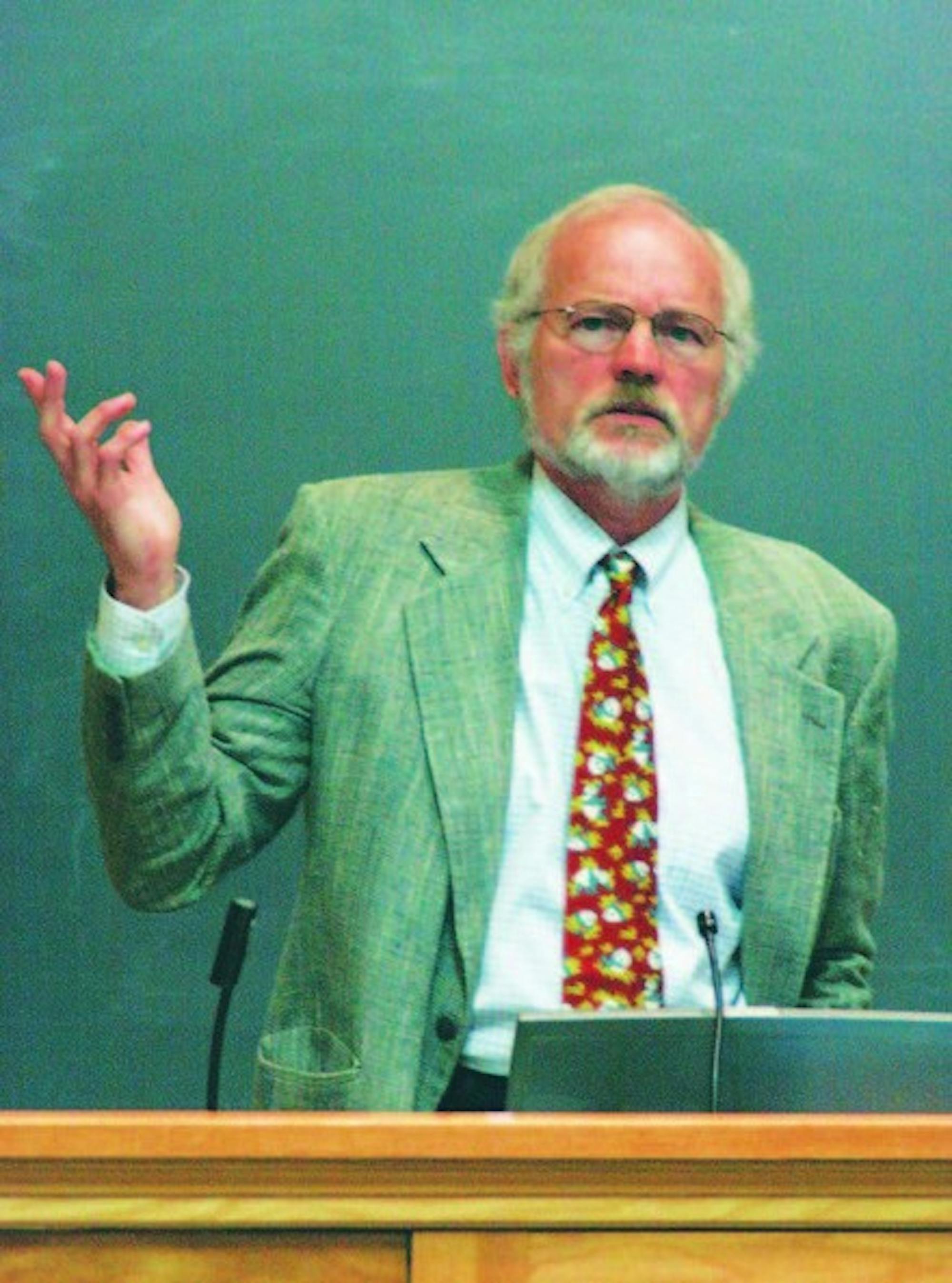"The arctic is ground zero for the immediate impact of climate change," Patrick Parenteau, senior counsel to the Environmental and Natural Resources Law Clinic, said on the panel. "This century, we're playing for the Greenland ice sheet."
Parenteau examined climate change policy through a legal perspective, discussing the potential impact the U.S. court system could have on matters of climate change. Damage compensation cases due to climate change are beginning to make their way through the court system, he said.
Parenteau, a professor at Vermont Law School, gave the example ofKivalina, a small village in Alaska that is at risk of being submerged due to global warming. The residents have filed a lawsuit against a number of large energy companies, including Exxon Mobil, seeking $400 million for damages due to global warming they claim these companies have caused. The $400 million would cover a full relocation of the village to a safer inland location.
David Conover, counsel to the Bipartisan Policy Center's National Transportation Policy Project, examined the possibilities for federal climate change legislation.
"You'd think I had a lot of spare time doing climate change for the Bush administration," Conover, former principal deputy assistant secretary for policy and international affairs at the U.S. Department of Energy, said.
The chief method of controlling climate change that is under debate within Congress is a cap and trade system, which aims to limit carbon emissions through economics, he said.
In a cap and trade system, companies are assigned an initial level of carbon emissions credits proportional to their carbon output. If a company exceeds the limit, it is fined. If a company reduces its emissions, it can sell its extra credits to other companies.
The credits operate as a currency to be traded between participating companies, Conover said. Policy-makers hope the system will provide incentives for companies to reduce their carbon emissions, he said.
One difficulty of establishing a cap and trade system lies in the distribution of the credits, Conover said. The government can either determine the price of the credits or allow the free market to determine the price, he said.
The European cap and trade system, which uses free market pricing, has experienced significant volatility due to investor speculation and an overabundance of credits in the market, according to Conover. If the U.S. adopts a similar program, it will need to limit the number of credits in order to avoid the same problems, he said.
Both speakers agreed that climate would be a dominant issue for the coming years.
"Anyone who is trying to argue that global climate change is not happening is simply wrong," Conover said.




